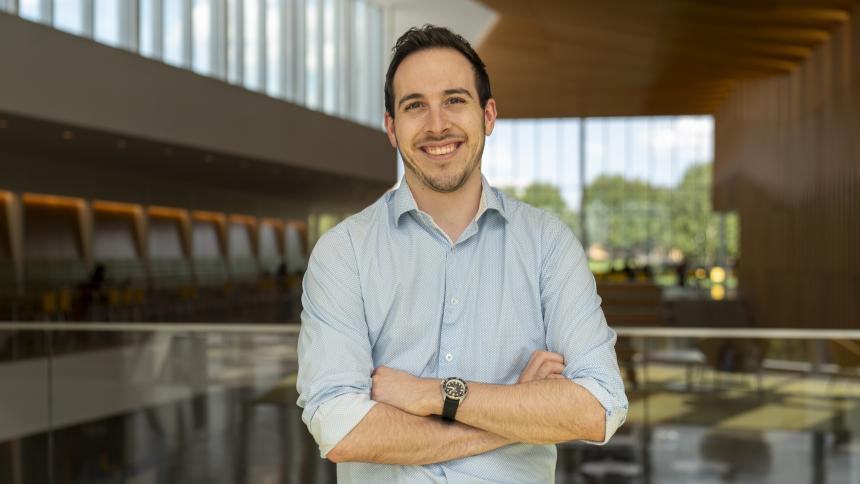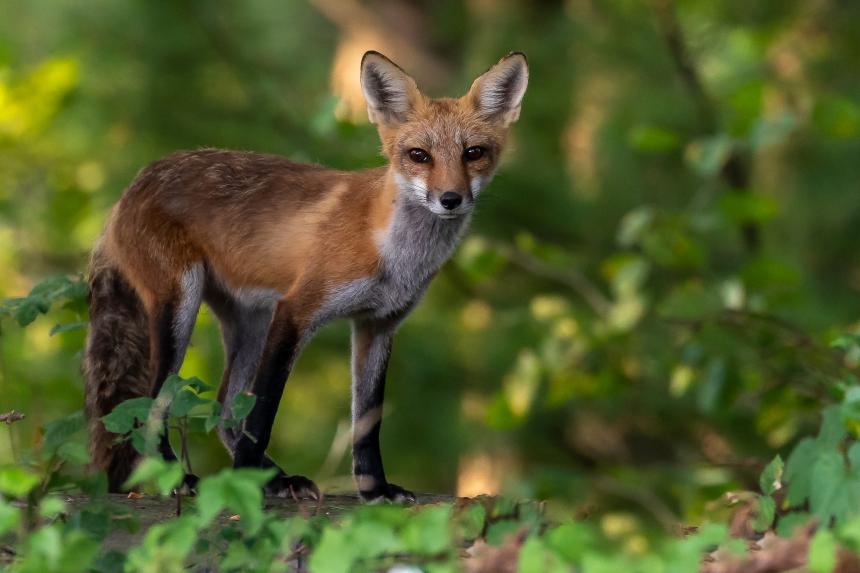In the News
News
November 18, 2024
Dr. Eric Baitchman, DVM, DACZM, was drawn to a career in veterinary medicine at an early age. “Growing up, I was really lucky to know veterinarians,” he recalls. “My father worked at the University of Rochester, and he worked alongside Dr. Jeff Wyatt, the main veterinarian for the Seneca Park Zoo in Rochester, New York...

Blog
October 18, 2024
Growing up, I couldn’t wait for the moment evening turned to dusk and the dancing silhouettes of bats began to fill the night sky. This love of bats grew with me, expanding as I could better understand the science behind what made bats so unique....

Blog
October 15, 2024
As forest land and animal habitats are cleared for commercial sugar cane fields in Uganda's Kasongoire Forest, chimpanzees resort to “crop raiding” in neighboring villages — escalating conflict and increasing the risk of disease transmission. Cornell student Julian Bement helped document this growing threat to both human and chimpanzee health.

October 07, 2024
Growing pressures on the environment are increasing needs and work opportunities for veterinarians in wildlife conservation. A gift of $35 million received by the Cornell University College of Veterinary Medicine — the largest in the school's history — will help fund activities of its wildlife health center into the future.

For Your Information
October 04, 2024
Fruit bats generate more diverse antibodies than mice, but overall have a weaker antibody response, according to a new study published by Cornell researchers.

October 01, 2024
Cornell's Migrations initiative is stepping into a new phase as the Migrations Program, part of the Mario Einaudi Center for International Studies, with CVM's Dr. Kathryn Fiorella joining as the program director.

Announcement
September 17, 2024
After an international search, Carmen R. Smith ’17, DVM ’21, has been selected as the inaugural Cornell K. Lisa Yang Center for Wildlife Health Free-Ranging Wildlife Pathology Fellow, who will focus on unraveling the causes and conditions responsible for unexplained wildlife mortality events around the world.

September 03, 2024
Diseases cross over from animals to people very rarely, with less than a tenth of one per cent of animal viruses ever successfully making the leap. And yet from another perspective the crossovers are common, with more than two-thirds of emerging diseases in humans having animal origins. Cornell's Dr. Beth Bunting weighs in on these zoonotic diseases.

August 27, 2024
New York state lawmakers announced $19.5 million in capital funding to the New York State Veterinary Diagnostic Laboratory to expand the Animal Health Diagnostic Center at Cornell.

August 14, 2024
Cornell's Drs. Raina Plowright, Amandine Gamble, and Krysten Schuler were awarded a grant from Cornell Atkinson’s Academic Venture Fund for their project: Integrating Primary Pandemic Prevention into mainstream policy, funding, and practice through One Health spillover investigation.
